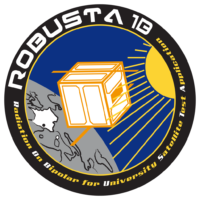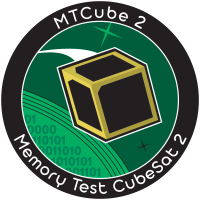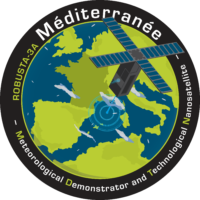Developing an emerging sector in France
nanosatellites
With the speed of their development and their relative affordability, nanosatellites are making space more accessible and enabling us to imagine new applications in a number of sectors (agriculture, the environment, communication, humanitarian, etc.). They also give us the ability to test new technology in space and collect data quickly and cheaply. A nanosatellite project allows companies to get involved in the space sector, while limiting risk-taking and costs.

400+
students have gone through the CSUM, including 240+ funded by the Van Allen Foundation

€700 000
annual budget of the Van Allen Foundation

€3.2M+
invested in training and projects

9
public conferences and technical workshops staged

10
nanosatellites
Our contribution
Van Allen Foundation funding for CSUM nanosatellite projects
Since its creation, the Van Allen Foundation has co-financed all CSUM nanosatellite projects and enabled the development of its 1U, 3U, and 6U-12U sectors.
This technology, entirely developed by the University of Montpellier,
is therefore 100% “Made In France”.
That means more than €3 million have been invested in CSUM projects.

ROBUSTA 1B
Its mission is to validate a radiation test standard and a new communication bus.
It was launched on June 23 2017, and is still in orbit. 50 students were involved in this project.

MTCube-2
Its mission is to measure the rate and distribution of errors on different types of flash memory in space. Launched on July 5 2019. 50 students were involved in this project

MEDITERRANEE
Its mission is to collect environmental data, which will be transmitted to Météo-France, to enable them to improve the forecasting of Cévenol events. Launched on July 9 2024. 300 students were involved in this project.
what about today?
The Van Allen Foundation co-finances the ROBUSTA-3A Méditerranée project, unique French academic representative of the Ariane 6’s maiden flight, to perform its mission in partnership with Météo France, IGN, ENSTA Bretagne and the Port of Sète from 2023.
The Van Allen Foundation is now supporting the development of the CSUM through larger nanosatellite projects (6U and/or 12U) which offer opportunities for carrying increased payloads, thus enabling applications related to Earth observation in general and to the environment in particular.
The development of new missions
The Van Allen Foundation runs multiple projects to envision new, widely applicable missions, for the nanosatellites of the CSUM:
![]() The creation of the Foundation’s Scientific Committee and the launch of ‘calls for ideas’ from the scientific community. Thanks to the partnership of the NICOLLIN Group, the FVA supports the CEFREM laboratory at the University of Perpignan and the CNRS, a specialist in the study of plastic waste in the Mediterranean Sea.
The creation of the Foundation’s Scientific Committee and the launch of ‘calls for ideas’ from the scientific community. Thanks to the partnership of the NICOLLIN Group, the FVA supports the CEFREM laboratory at the University of Perpignan and the CNRS, a specialist in the study of plastic waste in the Mediterranean Sea.
![]() The FVA has established a partnership with SDIS 34 to assess the feasibility of a joint project to meet their needs. For this, a Master’s student specialising in “Development of Space Systems” (Master’s from the Graduate School of Engineering) has been recruited on a work/study basis for 1 year.
The FVA has established a partnership with SDIS 34 to assess the feasibility of a joint project to meet their needs. For this, a Master’s student specialising in “Development of Space Systems” (Master’s from the Graduate School of Engineering) has been recruited on a work/study basis for 1 year.
![]() More broadly, through its network, the FVA responds to the needs of end-users, assesses the feasibility of a collaboration and establishes relationships with potential project stakeholders.
More broadly, through its network, the FVA responds to the needs of end-users, assesses the feasibility of a collaboration and establishes relationships with potential project stakeholders.
International Development
The Van Allen Foundation and the Montpellier University Space Centre are developing international partnerships, in particular with the Republic of Djibouti, Senegal and the Principality of Monaco.
In 2021, five Djiboutian students obtained a Master’s degree in Assembly Integration Testing at the IUT of Nîmes. Five others have obtained a Master’s degree in “Development of space systems” at the Polytech of Montpellier. These young graduates are currently hosted by the CSUM where they are building the Republic of Djibouti’s first satellite.
A similar partnership is underway with Senegal, culminating at the start of the 2021 school year in the arrival of ten Senegalese students following the same syllabuses.